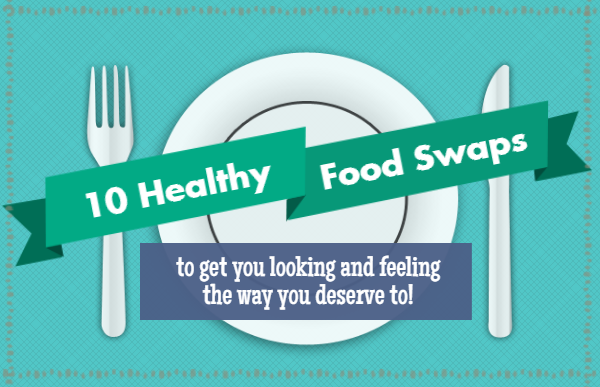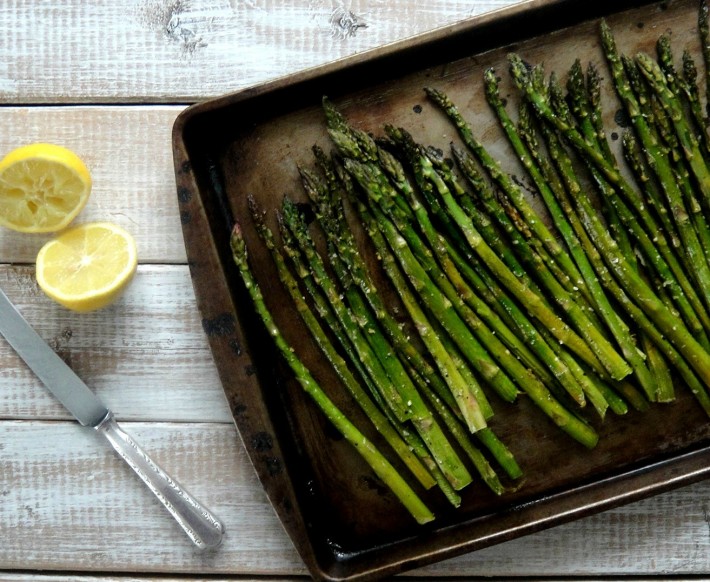
One time in college I tried canned asparagus. That was not a good experience. Poor asparagus- they never wanted to go in that can anyway. I’ve since figured out how to honor their deliciousness. This is hardly a recipe, just a method that works great with any vegetable you might have waiting patiently to be used up!
Continue reading
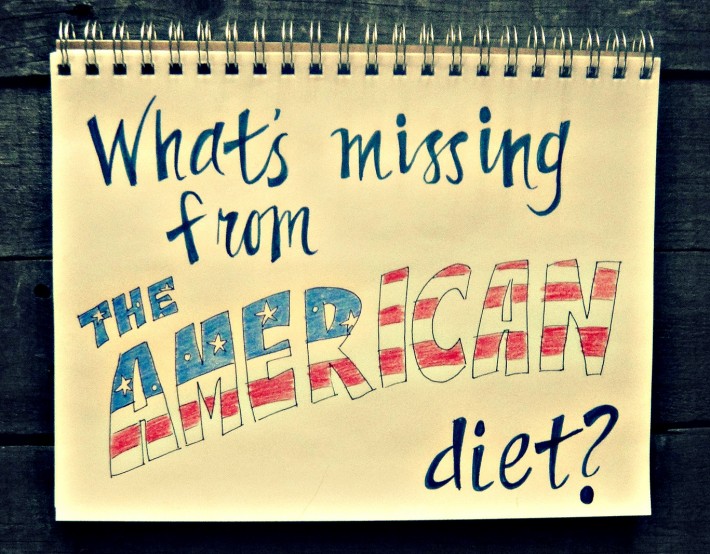
Junk is cheaper than healthier food, but only if you pay someone else to make it for you. Over the last century Americans have spent more and more on food that they didn’t prepare themselves. I think this is in part because we tend to equate eating out as a form of entertainment, so we don’t necessarily factor it into our eating expenses. While most Americans have no problem spending 30+ dollars on a single meal for two at a restaurant, we somehow can’t justify spending 100 dollars at the supermarket for a week’s worth of food. Continue reading
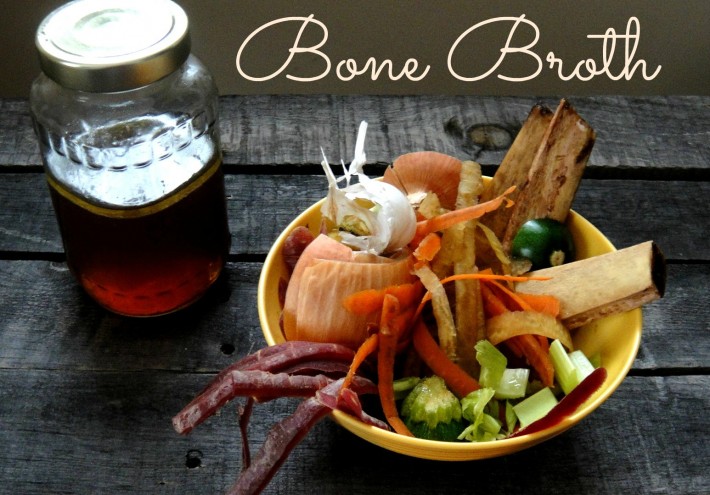
Good food takes time. If you’re new to cooking, it can also seem like a lot of work. To prepare a meal today, we have to drive to the grocery store and purchase the ingredients; the vegetables that have been trucked in from across the country, the spices that have been dried and packaged for us, and the meat that has been pre-portioned by the butcher. But if this seems like a lot of work, what did people do before supermarkets existed?
Continue reading
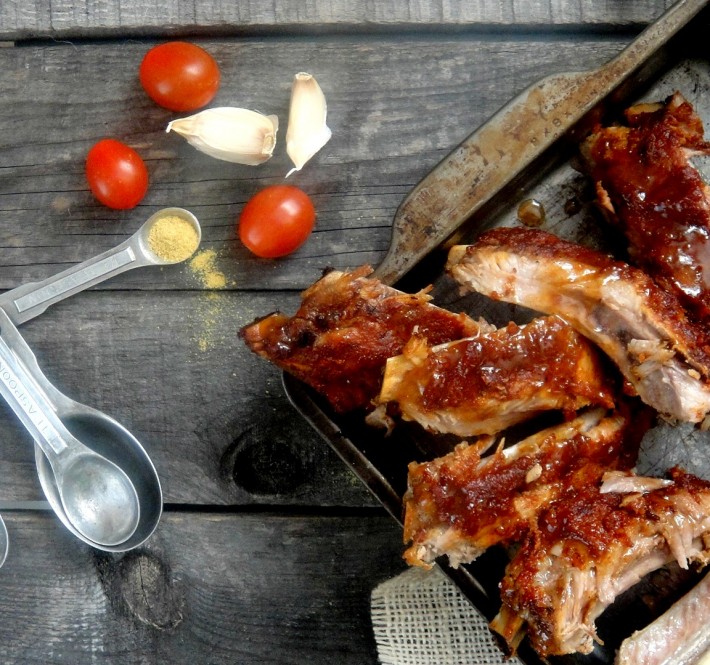
For far too long the health food community has suffered from fat phobia. This myth is slowly being unraveled, however, as new studies reveal the important role fat plays in our health. Recently, nutrition scientists at the Havard School of Public Health stated that:
“the low-fat campaign has been based on little scientific evidence and may have caused unintended health consequences”
Because we have been conditioned to fear fat in our food, eating foods with fat can feel sinful. But the reason fat is so tasty is because as humans we are biologically programmed to desire it. What our bodies are asking us for, however, are natural fats (ones that our ancestors evolved with over hundreds of thousands of years). The American diet has replaced these natural fats with man-made, industrial seed oils- fats that are not found in nature and are thus foreign to our bodies.
Ribs seem like a lot of work but they’re so easy. The problem with ribs is usually the sauce they’re smothered in. I make a BBQ sauce when I cook ribs so I can control the ingredients myself. If you do use a store bought sauce, check the label carefully.
Continue reading
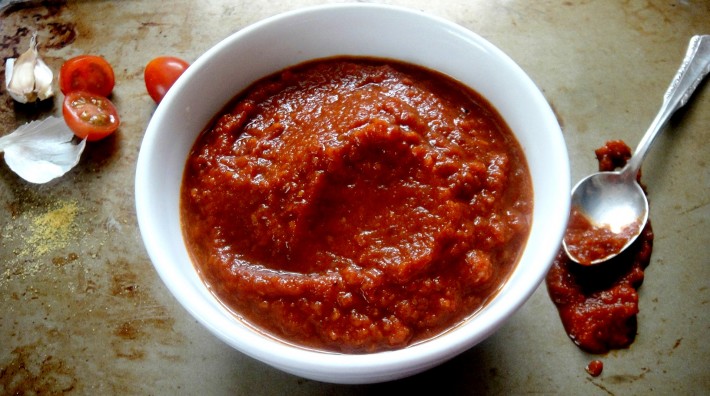
Americans have a love affair with sauces and condiments. Unfortunately, these products are usually more like science fair projects than food. Even (especially) when a product promotes itself with qualifiers like “fat-free!” or “low-sodium!”, you can usually just translate that to “sugar-loaded, chemical explosion!”.
As for barbecue sauce, the number one ingredient is almost always High Fructose Corn Syrup (from GMO corn). You’ll then get a good mix of other seemingly innocent ingredients: tomato paste, vinegar, caramel color. That last one may not catch your attention, but despite its wholesome sounding name, it is in fact linked to cancer and its safety is currently being reevaluated by the FDA.
Continue reading

The most unfortunate resistance to eating healthy is the connotation that in order to do so you must suffer through steamed broccoli and tofu every night. In reality, a healthy, real food diet can (and should) include foods that are insanely delicious.
The problem is that we’ve lost touch with our sensory signaling, and we automatically think if something tastes good, it must not be healthy. Continue reading
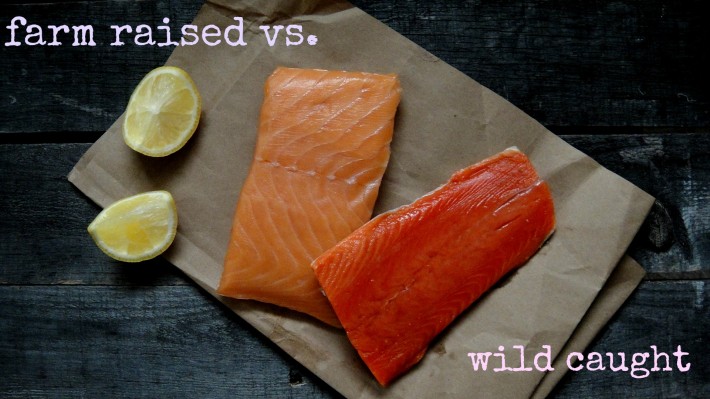
If you’re a health conscious person (and even if you’re not) I’m sure you’ve heard about the benefits of consuming more fish on a regular basis. Japanese and Mediterranean diets, which both include a great deal of seafood, seem to grow people who generally have lower risk of heart disease, longer life-span, and overall good health. By our reductionist approach, we have attributed this health benefit to the occurrence of Omega-3 fatty acids found naturally in fish, and especially high in fatty fish such as salmon. So we have concluded that eating salmon is good for us, but is that the end of the story?
As more and more people learn that by simply including this delicious fish into their diets they can live to 100 without dropping dead of a heart attack, sales of salmon have soared astronomically. And when demand is high, companies look to how they can produce more of a product, faster and cheaper. The solution for large-scale food producers is to farm salmon (that term alone personally conjures Dr. Seuss images of fish growing on trees somewhere). Farmed salmon is the fastest growing food production system in the world, accounting for 70% of the salmon sold worldwide. What does that mean? Unless the salmon you are buying is labeled as “Wild Caught”, “Alaskan”, or “Sockeye” you are purchasing fish raised by fish-farming practices. So is that really such a bad thing? Continue reading
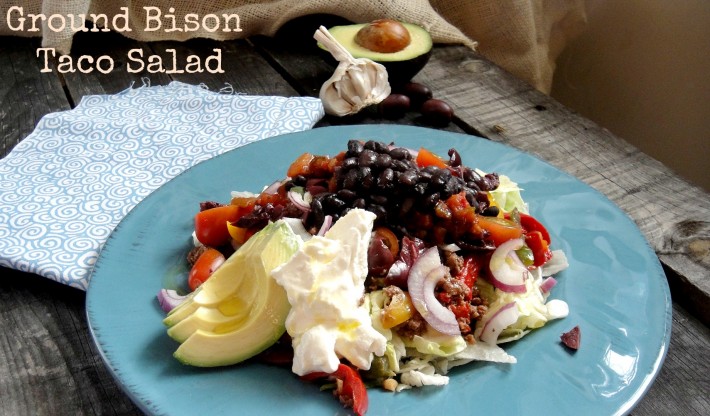
Sometimes salads can leave you wanting something more. This is NOT one of those salads. I’d even say its hearty enough to enjoy on a chilly freezing North Carolina Spring day (we’re waiting for you, warm weather!) It also results in my husband pushing his empty plate away with a “ooof, eskasa” (English translation: I explode)
Makes about 2 servings Continue reading
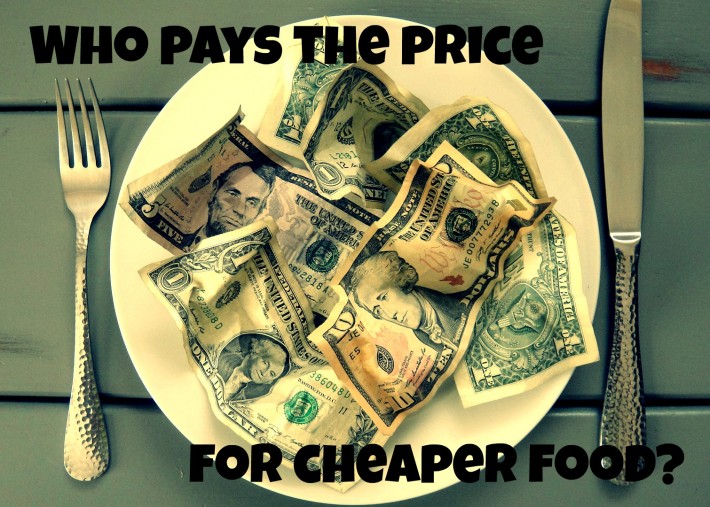
One of the most common complaints people have when switching to an organic/real food diet is the increase in their grocery bill. The truth of the matter is that healthy food is more expensive, often significantly more so. I truly believe that the universe has a way of balancing itself out, however, so in the case of food costs I’d like to pose the question, who is paying the price for cheaper food?
Oftentimes old adages lose meaning to us simply because we have heard them again and again. But as the saying goes, “you get what you pay for”, and I believe you really do. As consumers we understand this principle when it is applied to most of the things we purchase- clothes, cars, electronics, hotels. So why, then, do Americans have such a resistance to paying more for the food we eat? After all, what could be more important than the nourishment we give our bodies each and every day? To anyone who objects to higher food prices based on the claim that they can’t afford them, I would argue that as Americans what we really cannot afford is to continue eating cheap, processed foods. Continue reading

